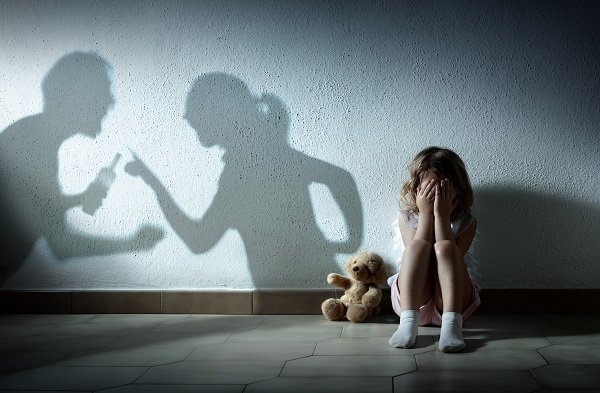Table of Contents
Gender-Based Violence: The Mental Health Implications and the Path to Healing
Gender-based violence (GBV) is one of the most pervasive human rights violations worldwide, affecting millions of people globally, particularly women and girls. While the physical impacts of GBV are often discussed, the psychological consequences are equally devastating, yet often remain overlooked. This comprehensive article explores the mental health effects of GBV, focusing on its long-term psychological consequences and the importance of early intervention and ongoing support for survivors.
Understanding Gender-Based Violence and Its Scope
What is GBV?
Gender-based violence refers to harmful acts directed at individuals based on their gender identity, and it often disproportionately affects women and girls. This violence can take many forms, including:
- Physical violence: Hitting, slapping, and other forms of physical abuse.
- Sexual violence: Rape, sexual assault, and coerced sex.
- Emotional and psychological abuse: Manipulation, threats, and controlling behaviors.
- Economic abuse: Withholding financial resources or controlling access to money.
GBV may occur at the hands of intimate partners, family members, or strangers, and it can happen in the home, workplace, or even in public spaces. What’s more alarming is the long-lasting impact of GBV on survivors’ mental health, which often lingers far beyond the physical injuries.
Alarming Global Statistics
The global scope of GBV is staggering, and while significant efforts have been made to address it, the prevalence remains disturbingly high. The following statistics illustrate the widespread nature of this issue:
- According to the World Health Organization (WHO), 1 in 3 women globally have experienced physical or sexual violence in their lifetime, with intimate partners being the primary perpetrators.
Read more on WHO’s Gender-Based Violence page - An estimated 15 million adolescent girls worldwide have experienced forced sex, with many cases occurring before the age of 18.
Learn more from UN Women on adolescent girls and violence - The prevalence of GBV increases significantly during crises such as wars, pandemics, and natural disasters, as reported by UN Women.
Visit UN Women’s page on the impact of crises on GBV
These statistics not only highlight the scale of the problem but also underscore the urgent need for comprehensive interventions and support for survivors.
Mental Health Implications of GBV
The psychological effects of GBV are profound and often remain long after the physical injuries have healed. Survivors of GBV are at an elevated risk for developing a range of mental health disorders, and the effects can be both immediate and long-lasting.
Common Mental Health Conditions Among GBV Survivors
- Post-Traumatic Stress Disorder (PTSD)
- PTSD is one of the most common mental health conditions experienced by GBV survivors. The trauma of abuse often leads to intrusive thoughts, nightmares, and flashbacks. Survivors frequently relive the traumatic events, and their day-to-day functioning can be significantly disrupted. PTSD can lead to feelings of hypervigilance, where the survivor is always on edge, constantly fearing further harm.
- Find more information on PTSD from Mayo Clinic
- Depression
- Depression is a common mental health issue for survivors of GBV, often characterized by feelings of hopelessness, worthlessness, and extreme sadness. Survivors may lose interest in activities they once enjoyed and withdraw from social relationships. In some cases, depression may escalate into suicidal ideation, making it crucial to provide timely intervention.
- Learn more about depression from WebMD
- Anxiety Disorders
- Anxiety is another prevalent condition among survivors of GBV. Persistent worry, fear of further violence, and hyperarousal are symptoms of anxiety that can disrupt daily life. Survivors may also experience panic attacks, which can be triggered by reminders of the trauma, such as a specific place, person, or situation.
- For more on anxiety disorders, visit the Anxiety and Depression Association of America
- Substance Use Disorders
- Many survivors of GBV resort to alcohol or drugs as a coping mechanism for their emotional pain. Substance use disorders are prevalent among survivors as they seek to numb their feelings of anxiety, fear, or depression. Unfortunately, substance use can exacerbate mental health issues and prevent healing from the trauma.
- Learn more about substance use and mental health at National Institute on Drug Abuse
Cognitive and Emotional Impacts of GBV
Beyond clinical diagnoses, GBV has significant cognitive and emotional effects on survivors. These impacts can hinder personal growth, relationships, and self-esteem.
- Self-Blame and Guilt: Survivors may struggle with irrational guilt or self-blame, often believing they are responsible for the abuse or that they somehow deserved it. These feelings of guilt can be compounded by societal victim-blaming narratives.
- Emotional Numbness: Survivors may develop emotional numbness or a sense of detachment from their surroundings. This can make it difficult for them to connect with others, leading to isolation and difficulty forming new relationships.
- Trust Issues: GBV survivors often experience difficulty trusting others, particularly in intimate relationships. This lack of trust can severely impair future relationships, preventing survivors from seeking emotional support or forming healthy partnerships.
Hormonal Changes and Mental Health
Trauma from GBV can trigger significant hormonal changes, further affecting mental health. These hormonal imbalances can exacerbate symptoms of depression, anxiety, and PTSD. The trauma response can lead to long-term disruptions in the body’s endocrine system, influencing the production of key hormones that regulate mood and emotional stability. To gain a deeper understanding of the role of hormones in mental health, you may find our article on Hormonal Fluctuations and Mental Health During Perimenopause insightful.
Long-Term Psychological Effects of Gender-Based Violence
Impact on Relationships
One of the most profound impacts of GBV is its effect on relationships. Survivors may find it difficult to trust others, particularly in intimate relationships, leading to strained partnerships and a lack of social connection. Intimacy, both physical and emotional, can become a source of anxiety, making it difficult for survivors to engage in healthy, fulfilling relationships.
The trauma of GBV may also affect family dynamics. Survivors may struggle with parenting, especially if they have children who are exposed to the violence. This can lead to feelings of inadequacy or guilt, as survivors may feel they are unable to protect their children from harm.
Intergenerational Trauma
The effects of GBV are not limited to the survivors alone. Children who grow up in environments where GBV is prevalent are at an increased risk of experiencing emotional and psychological problems. These children may also become victims or perpetrators of violence in the future, perpetuating the cycle of trauma. It is essential to provide support not only to the survivors of GBV but also to their children, as early intervention can help break the cycle of abuse and prevent future generations from experiencing similar trauma.
Workplace and Economic Implications
The psychological effects of GBV can significantly impair survivors’ academic and career development. Survivors may have difficulty concentrating, focusing, or maintaining productivity due to their mental health challenges. This can result in missed opportunities for career advancement, job loss, or economic dependency on an abusive partner.
Furthermore, survivors may experience economic abuse, where their access to financial resources is controlled by the perpetrator. This financial dependency can make it difficult for survivors to leave abusive relationships, leading to a cycle of poverty and further emotional distress.
Physical Health Connections
Chronic psychological trauma can manifest in physical health issues, compounding the challenges faced by GBV survivors. According to the Mayo Clinic, trauma can lead to:
- Hypertension: The constant stress and anxiety of living with abuse can raise blood pressure and increase the risk of heart disease.
- Digestive Disorders: Survivors of GBV may experience digestive issues such as irritable bowel syndrome (IBS) or other chronic gastrointestinal conditions.
- Immune Dysfunction: Chronic stress can weaken the immune system, making survivors more susceptible to illness.
- Chronic Fatigue and Insomnia: Sleep disturbances are common among survivors of GBV, which can lead to chronic fatigue, difficulty concentrating, and overall poor health.
Social Isolation and Stigma
Cultural taboos and victim-blaming often force survivors of GBV into isolation. The stigma surrounding abuse can delay help-seeking behavior, worsening both psychological and physical health outcomes. Survivors may fear judgment or further abuse if they speak out, which can prevent them from accessing necessary support services.
In many societies, survivors of GBV are often seen as weak or shameful, and they may feel unable to share their experiences or seek help from others. This isolation only serves to deepen their suffering and prolong the healing process.
Breaking the Cycle of Trauma: Healing and Support
While the psychological effects of GBV are severe, healing is possible. With the right interventions, survivors can rebuild their lives and regain control over their emotional and psychological well-being. It is essential to provide survivors with both immediate and long-term support to help them recover and thrive.
Early Intervention and Mental Health Support
- Therapeutic Approaches
- Cognitive Behavioral Therapy (CBT): CBT is a widely used, evidence-based treatment that helps survivors reframe negative thoughts and develop healthier coping strategies. It focuses on the connection between thoughts, feelings, and behaviors, enabling survivors to challenge distorted thinking patterns.
- Eye Movement Desensitization and Reprocessing (EMDR): EMDR is particularly effective for survivors of trauma. This therapy involves guided eye movements while recalling traumatic memories, helping to process and reframe the emotional distress associated with those memories.
- Community-Based Initiatives
- Peer-led support groups and local NGOs can provide survivors with a sense of community and shared experience. These programs offer a safe space for survivors to share their stories, receive emotional support, and connect with others who have gone through similar experiences.
- Trauma-Informed Care
- It’s critical for mental health professionals, healthcare providers, and social workers to adopt trauma-informed care practices. This approach acknowledges the prevalence of trauma and integrates this understanding into every aspect of service delivery, ensuring that survivors feel safe, respected, and supported.
The Role of Social Support
A robust social support system is key to the healing process. Friends, family, and community networks can help survivors rebuild their sense of self-worth, reduce isolation, and provide emotional encouragement. Support can also help survivors navigate complex systems, such as the legal system or healthcare system, which may otherwise feel overwhelming.
The Importance of Education and Advocacy
Raising awareness about GBV and its mental health implications is critical to breaking the silence surrounding this issue. Education is the first step toward creating a more compassionate society that recognizes the trauma survivors face.
- Educational Campaigns: Schools, workplaces, and media must promote education on healthy relationships, consent, and boundaries. Public health campaigns should emphasize the importance of recognizing and addressing GBV in all forms.
- Advocacy for Policy Change: Governments must invest in policies that provide support for survivors of GBV. This includes expanding access to mental health services, increasing funding for community-based programs, and strengthening laws that protect survivors.
Where to Seek Help
If you or someone you know is struggling with the effects of GBV, don’t hesitate to seek help. Trusted services include:
- National Domestic Violence Hotline (USA): 1-800-799-SAFE (7233)
- RAINN Sexual Assault Hotline: 1-800-656-HOPE (4673)
- Find Therapists: Local mental health directories or national health services
Conclusion
Gender-based violence leaves lasting emotional and psychological scars, but healing is possible. Survivors, with the right support systems and mental health care, can reclaim their lives and regain a sense of agency. Through education, advocacy, and trauma-informed care, we can break the cycle of abuse and help build a safer, more supportive world for all.
In addition to mental health support and therapy, engaging in activities that promote overall well-being, such as physical fitness, can be a powerful tool in recovery. Exercise has been shown to improve mood, reduce stress, and help survivors regain control over their mental health. Fitness can significantly boost mental health by enhancing emotional resilience and promoting positive self-image. To learn more about how fitness can support mental health recovery, check out our article on How Fitness Can Boost Mental Health Benefits.
External Resources:
- Mayo Clinic – Post-Traumatic Stress Disorder (PTSD)
- RAINN – Rape, Abuse & Incest National Network
- UN Women – Ending Violence Against Women
Frequently Asked Questions About Gender-Based Violence and Mental Health
1. What is gender-based violence (GBV)?
- Gender-based violence refers to harmful acts directed at individuals based on their gender identity. It typically affects women and girls, though people of all genders can be victims. GBV includes physical, sexual, emotional, and economic abuse, often perpetrated by intimate partners, family members, or strangers.
2. How does gender-based violence impact mental health?
- GBV can have profound psychological effects, including conditions like PTSD, depression, anxiety, and substance use disorders. The trauma from abuse can leave survivors with long-lasting emotional scars, such as guilt, trust issues, and emotional numbness, which hinder their mental health and well-being.
3. What are the most common mental health conditions resulting from GBV?
- Survivors of GBV often experience:
- Post-Traumatic Stress Disorder (PTSD): Flashbacks, nightmares, and severe anxiety.
- Depression: Feelings of hopelessness, worthlessness, and sadness.
- Anxiety Disorders: Persistent worry, fear, and hypervigilance.
- Substance Use Disorders: Many survivors turn to alcohol or drugs as a coping mechanism.
4. How does GBV affect relationships?
- Survivors of GBV often struggle with trust, intimacy, and emotional connection in future relationships. The trauma experienced can create barriers to forming healthy relationships, and they may find it challenging to open up to others, leading to isolation and difficulty in forming strong bonds.
5. What is the role of intergenerational trauma in GBV?
- Intergenerational trauma refers to the emotional and psychological scars passed down from one generation to another. Children exposed to GBV may grow up with emotional problems and may either become victims or perpetrators of violence themselves. Addressing trauma early can help break the cycle of violence.
6. How can GBV survivors cope with mental health challenges?
- Survivors can cope with the mental health effects of GBV through several strategies:
- Therapy: Cognitive Behavioral Therapy (CBT) and Eye Movement Desensitization and Reprocessing (EMDR) are effective in treating trauma-related symptoms.
- Community Support: Support groups and peer-led programs offer survivors a sense of belonging and understanding.
- Social Support: A robust support network of family and friends is crucial in rebuilding self-worth and reducing feelings of isolation.
7. How does GBV affect survivors’ physical health?
- Chronic psychological trauma from GBV can lead to physical health issues, including:
- Hypertension: Constant stress can lead to increased blood pressure.
- Digestive Disorders: Conditions like IBS can be exacerbated by stress and anxiety.
- Immune Dysfunction: Trauma can weaken the immune system, making survivors more susceptible to illness.
- Chronic Fatigue and Insomnia: Sleep disturbances due to stress can lead to physical exhaustion and mental health challenges.
8. How does stigma contribute to the mental health challenges of GBV survivors?
- The stigma around GBV often forces survivors into isolation. Victim-blaming and cultural taboos can prevent survivors from seeking help or speaking about their trauma, which can exacerbate mental health issues and delay recovery. It’s important to create an environment that encourages open discussions and supports survivors.
9. What kind of therapies are effective for GBV survivors?
- Effective therapies for survivors of GBV include:
- Cognitive Behavioral Therapy (CBT): Helps survivors identify and change negative thought patterns.
- Eye Movement Desensitization and Reprocessing (EMDR): A specialized therapy for trauma that helps process distressing memories and reduce symptoms of PTSD.
- Trauma-Informed Care: Approaches that prioritize creating safe and supportive environments for survivors to discuss their experiences.
10. How does fitness play a role in healing from GBV?
- Physical activity has been shown to improve mental health by reducing stress, anxiety, and depression. Engaging in fitness activities can promote emotional resilience, improve body image, and reduce feelings of isolation. Explore more about how fitness boosts mental health benefits.
11. How can I support someone who is a survivor of GBV?
- Support for survivors of GBV can be provided through:
- Listening and validating their experiences without judgment.
- Encouraging them to seek professional help, such as therapy or counseling.
- Offering practical assistance, such as helping them find support groups or resources.
- Being patient and understanding as healing is a gradual process.
12. How can I raise awareness about GBV and its mental health impacts?
- Raising awareness about GBV involves educating communities on the psychological and physical effects of abuse. Campaigns should focus on breaking the silence around GBV, supporting survivors, and addressing the stigma that often surrounds the issue. Schools, workplaces, and media can play an essential role in promoting education about healthy relationships and consent.
13. Are there resources for survivors of GBV?
- Yes, there are various resources available for survivors of GBV. Some of the trusted services include:
- National Domestic Violence Hotline (USA): 1-800-799-SAFE (7233)
- RAINN Sexual Assault Hotline: 1-800-656-HOPE (4673)
- Local therapists: Mental health directories can help you find therapists who specialize in trauma and abuse recovery.
14. What role do governments play in supporting survivors of GBV?
- Governments can support survivors by:
- Implementing stronger legal protections for survivors of GBV.
- Providing funding for mental health services and community programs.
- Enforcing paid maternal leave, and offering financial support to reduce economic dependency.
- Promoting public awareness campaigns to educate communities and reduce stigma.
15. What is the connection between GBV and workplace challenges?
- Survivors of GBV often experience difficulties in the workplace, such as lower productivity, anxiety, difficulty concentrating, and heightened stress. Employers can play a key role by creating supportive environments, offering mental health resources, and implementing policies that prevent workplace harassment and violence.
External Resources
For further information and support, here are some helpful resources:



